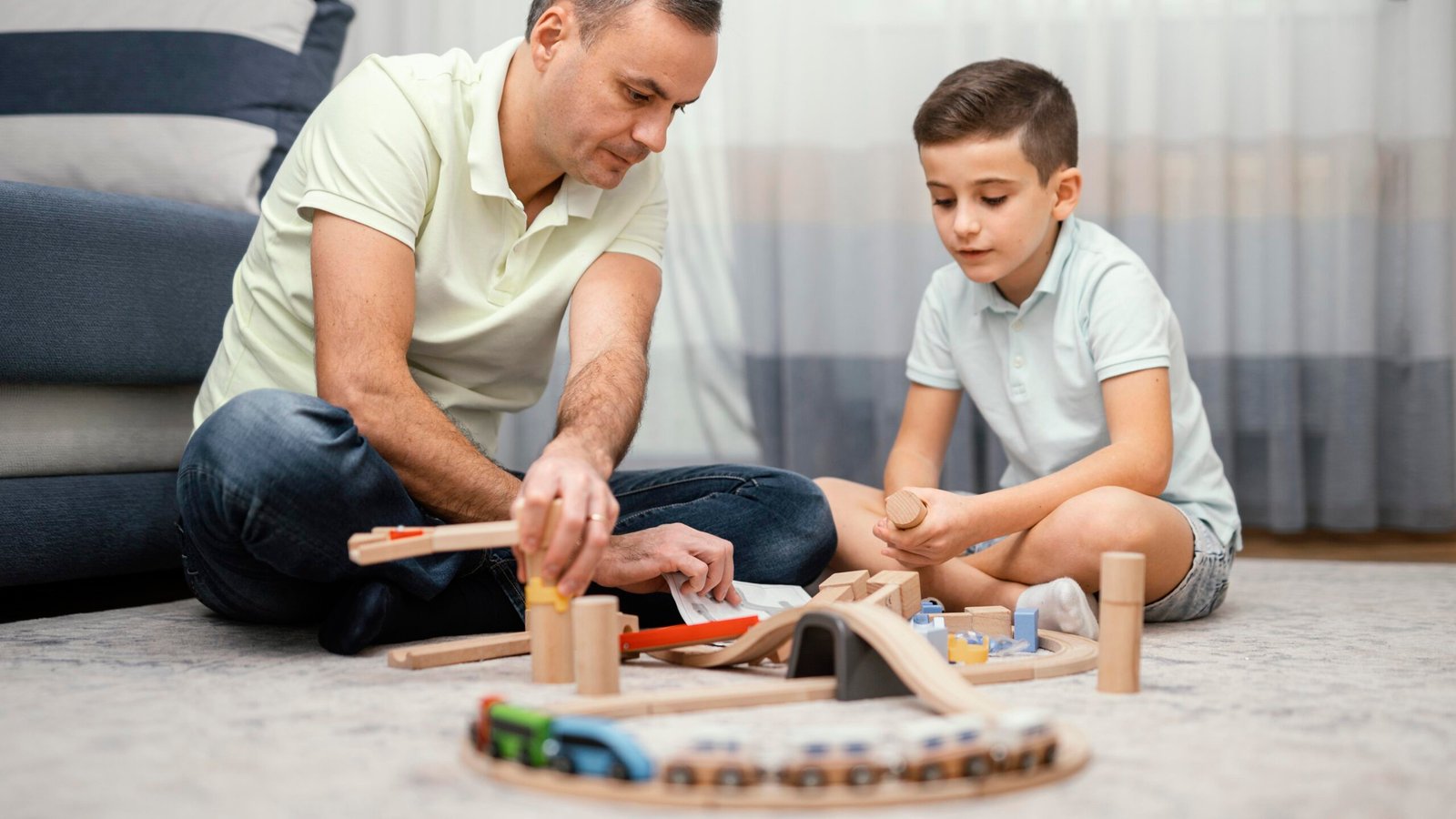Playing with a Child: Is It Only a Game?
Play is far more than the vent children appear to enjoy. Play is one of the vital parts of child growth and development. When the parent joins in with playing with their child, then he or she is doing something far greater than just killing time; he or she is taking each opportunity to advance cognitive, social, emotional, and physical development of their child.
There are numerous benefits from play, and we will cover a lot of ways that you can relate with your child in this article, which will make it easier for you to know how to be involved in their lives through playing.
Why is Play Important?
1. Cognitive Development
When children play, they explore their world. This exploration helps them learn about shapes, colors, numbers, and problem-solving. Imagine your child stacking blocks. They are not just having fun; they are experimenting with balance and learning how to solve problems when those blocks fall down. According to research, children who have indulged in play develop better thinking skills which help them in school and life.
Problem-Solving Skills: The children experiment in several ways to obtain an objective while playing. When, during play, they get problems and issues, then they learn how to think critically and come up with solutions.
Creativity: Through imaginative play, children develop creativity. They can be any superheroes, doctors, or animals. The creativity exhibited by children is important for thinking outside the box when they grow up.
2. Social Skills
Social and human involvement is learned from playing with other kids. For example, sharing toys, taking turns, and playing cooperatively during games can all be quite simple and still important to social skills.
Communication: When children play together, they learn how to express themselves and their thoughts and feelings. They practice words to explain ideas or to negotiate roles in a game.
Team Work: Most of the games require children to work in teams. This has helped them understand how cooperation works and appreciate other people’s points of view.
3. Emotional Intelligence
Play is also a fantastic way in which the children learn how to control emotions. In playing, they can manifest their feelings of happiness, fear, or grief in a protected environment.
Emotional Control: Playing enables children to experience various emotions. For instance, when they pretend to scare people during a horror game, they get scared without the repercussions.
Empathy: Role playing enables children to understand how others feel. By being put into other people’s shoes, they become more caring and considerate.
4. Physical Development
Play is not just a mental and emotional up-bringing process; it also grows the children physically. Whether running, jumping, or climbing, play enhances one’s physical abilities.
Gross Motor Skills: The activities of running and jumping enhance the coordination of kids as well as increase their strength. This is very important for the all-round development of a child’s body.
Fine Motor Skills: Play in which children have to use smaller movements such as handicraft or playing with small pieces develop dexterity and hand-eye coordination.
Involvement with Your Child
Now that we know how beneficial play is, let’s look at how you can engage with your child in fun and meaningful ways.
Types of Play You Can Enjoy Together
Outdoor Play: Go to a park and explore nature. Play games like tag or hide and seek.
Organize a family picnic with fun outdoor games like frisbee or soccer.
Creative Play: Spend hours creating with papers, scissors, glue, and paint. Let your child’s imagination soar!
Dramatic Play: Create a “restaurant” in your living room. Take turns cooking and ordering food.
Construction: Build something together. Use blocks, LEGOs, or old recycled materials to make a masterpiece.
Work on puzzles or model-building kits that take lots of problem-solving time.
Board Games and Card Games: Play board games suitable for their age. This develops cognitive skills while inculcating patience and sharing.
Card games—simple ones that hone memory and concentration.
Tips to Involve Them in Engaging Play
Be Present: While spending time playing with them, put away cell phones and all distractions. More than everything else, they need your attention.
Let Them Dictate the Play: If they like that game or activity, allow them to. That is where creativity is born.
Make It Fun: Lighten it up and have fun. Laugh, be goofy, and get ridiculous. The whole point is to bond and have fun together.
Give Them Choices: Make sure to give your child the ability to make choices during play. That is how to build a decision-making muscle and boost their confidence.
Questions to Spark Conversation
For instance, you can ask open-ended questions to your child during playtime when encouraging them into discussion and deeper thinking. Some examples of such questions are as follows:
“What do you think will happen if we build the tower this way?”
“How does it feel to play that character?”
“What would you do differently next time?”
Such questions help children grow their thoughts in such a way that they may easily express themselves and eventually lead in developing critical thinking.
Conclusion
This is how play with your child becomes the most effective methodology for driving development. Children with their parents learn innumerable essential skills needed at every turn of human life. The amusement benefits are not as huge as those pertaining to developing cognitive, social, emotional, and physical capabilities. Go ahead, take some toys, go outside, be creative! Each of the moments spent in playing with your child is truly an investment in the future.
The more you play, the closer you are to your child. You make memories for them to carry to the ages. So, what’s it waiting for? Hug the power of play today and watch your child grow!
